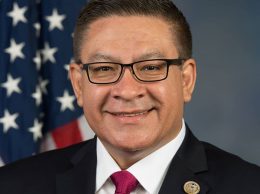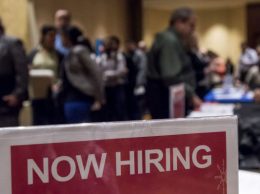Dear Editor:
I was one of 50 South Coast business owners and founders who sent a letter to the Santa Barbara Region Chamber of Commerce asking it to endorse Measure P, the Healthy Air & Water Initiative to ban fracking and other extreme oil extraction in Santa Barbara County.
This was an impressive and diverse list of leaders in technology, real estate, clean energy, farming, building and architecture, medicine and other fields whose companies employ more people in Santa Barbara County than the the oil industry does.
However, I was not surprised when the chamber came out against Measure P anyway. Nationally, the U.S. Chamber of Commerce is tightly connected with the oil and gas industry, and they generally speak as one.
This was not always the case. In an earlier time, when local chambers were more independent, the Santa Barbara chamber recognized the fact that oil production is a risky enterprise that discourages tourism and other economic development that is the true basis for the wealth and well-being of Santa Barbara County.
According to county records, as early as 1908, Santa Barbara’s chamber of commerce opposed construction of an oil pipeline on Sterns Wharf, fearing oil pollution. In 1929, the chamber came out in opposition to drilling within the city.
But today, the oil industry exerts disproportionate influence on politics and community organizations. While representing less than 1 percent of the county work force and GDP, the oil industry is one of the larger contributors to political campaigns. The industry knows that it needs to grease the wheels to get away with activities that put the other 99 percent of our economy at risk.
If Measure P does not succeed, we are facing a huge increase in oil production using water and energy-intensive techniques that would destroy our local environment and hurt property values and business interests. This is not theoretical. The county has or expects to receive applications for nearly 1,000 new wells this year, nearly doubling existing production.
These high-intensity techniques have higher well casing failure rates, leaks and other spill risks and could permanently contaminate critical aquifers.
In addition, sea-level rise, drought, fire and crop failure are real business risks we face from increased climate change. Failure to pass Measure P would mean potentially doubling county greenhouse-gas emissions at a time when responsible long-term economic efforts are better served by reducing emissions.
Measure P exempts all current oil wells and maintenance activities while protecting our county from the significant harm experienced in other places where unconventional oil production has increased dramatically.
There are hundreds of similar bans on fracking and other oil production in the U.S., and there has never been a successful legal “takings” claim against one.
Citizens have every right to decide whether or not to allow toxic chemicals to be injected through their groundwater aquifers.
While as a businessperson I respect many of the things the local chambers of commerce do for us, unfortunately, when it comes to Measure P, they are dead wrong about our true economic interests.
—Jim Taylor, owner, Carpe Data, Carpinteria






 Print
Print Email
Email

















